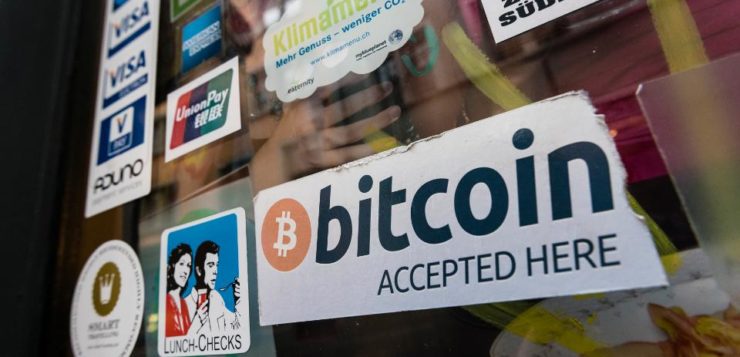Bitcoin has had its ups and downs – and more downs than ups lately. But blockchain, the technology that makes up the foundation of the cryptocurrency known as Bitcoin, has made leaps and strides in its use in business applications. Retailers find themselves having to straddle both worlds – the world of cryptocurrency for payments (actually accepting something like Bitcoin as a payment option from consumers), and blockchain technology, which is rapidly becoming foundational in some supply chain applications – and beyond.
Blockchain Technology Evolution
To understand those applications, it helps to have a grounding in the technology. The basics of distributed ledgers, smart contracts, and tokens to govern access to those things are roads that have become well-traveled, so I won’t cover them here (if you want a physical-world analogy, though, what Banksy does with his Certificates of Authenticity for printed art is pretty close – it just lacks the public nature of the ledger). But there have been some interesting new developments beyond these fundamentals that anyone who cares about blockchain in retail ought to pay attention to:
- The expansion of cryptocurrencies. Bitcoin and Ethereum get most of the attention, but with Facebook’s announcement of its own coin and continued speculation that Amazon might be looking at its own cryptocurrency, the profile of consumer adoption of cryptocurrencies may change drastically in a few years’ time. And it may be competitors’ currencies that retailers end up having to accept, where a retailer like Amazon or Alibaba create an ecosystem large enough that they can launch or support their own internal currency, which then has value to marketplace sellers and beyond.
- Initial Coin Offerings or ICO’s. This was probably the most wild-west of the developments in blockchain in the last few years, where companies with a blockchain-backed plan were seeking to fund themselves by selling off tokens that would give access to the (as yet undeveloped) blockchain ecosystem they were creating. National securities organizations got involved in reining those in, as they rapidly became very high-risk and sketchy ways of raising money outside of established fund-raising processes. Some are still out there, but at least now carry large “Buyer Beware” signs on them.
- Initial Equity Offerings (IEO’s) or Security Token Offerings (STO’s). These have recently arisen in response to the crackdown on ICO’s, where, instead of being backed by a promise to develop software and attract a large number of users in order to create a valuable ecosystem, the token is backed by a real asset. Some recent developments here: the launch of BitCar, a blockchain-based exchange that lets people invest in exotic cars like they would a company on the stock market, and Overstock’s recent move to launch an STO trading exchange.
Retailers obviously need to pay a lot of attention to developments in cryptocurrencies, because they have to be able and willing to take payment from consumers however they want to pay. If Facebook’s coin signals the launch of currencies across large platforms where retailers engage, the need to support cryptocurrency payments may get real for retail very fast.
ICO’s should hopefully be becoming a thing of the past, as buying into a coin to access a market that hasn’t been built yet is about the most optimistic (and exposed to exploitation) as you can probably get. In retail, these most often manifest as loyalty program schemes that base their loyalty rewards off of coins or tokens that retailers would use to reward consumers.
IEO’s at least have real, tangible securities behind them, which should ensure that they are more stable in value over time. The impact on retail may, however, be more as an issuer of an IEO than as a purchaser of such tokens. Overstock would be the complete outlier here – while the company is a retailer, the business got involved in cryptocurrencies in very early days (they were one of the first to accept Bitcoin) and their interest has basically evolved into a whole new business for them. Don’t expect a lot of other retailers to follow suit.
Overstock aside, rental and subscription businesses or lease businesses may move more towards something backed by blockchain technology, and retailers who offer very expensive items may find themselves in this territory. Not a common thing, but one to keep an eye on in retail.
Business Application Maturity
The other place where there has been a lot of development has been in the maturity of the blockchain-based business applications that solution providers are offering. Even a year ago, the vast majority of solutions floated were “ideas” or, at best, pilots with no commitment to continue to rollout.
A lot has changed. The best way to think about blockchain application maturity is along a spectrum:
Least Mature: Theoretically Possible
Any company based on an ICO model falls deep into the “theoretically possible” category. I’ve read lots of whitepapers laying out how companies intend for their blockchain solutions to work, and I would hazard a guess that at least 50% of them are completely unclear as to how their model will work, even assuming they achieve a base level of adoption. Theoretically, blockchain can be used to open up closed gaming systems, for example. The reality of how that would actually happen? Very, very unclear.
Pilots
There is a lot of activity going on around pilots. However, with blockchain applications a lot of pilots are more about experimentation than proving out an implementation as a precursor to a rollout. Some pilots get turned off, rather than rolled out. That’s okay. Experimentation is important. Just don’t confuse the two different kinds of pilots: one is proving out a theory, the other is far more mature than most pilots you see in blockchain, which is proving out a specific configuration prior to rollout. Experimental pilots are harder to track because they often deliberately never make it to the public’s eyes.
Custom
Some companies are going off on their own to experiment with blockchain, and actually moving to rollout. They may be using partners to achieve their goals, but aren’t necessarily signing on to a public network offering (discussed below). Carrefour is a good example, where they are doing things similar to work you’d see in consortium solutions, but doing it on their own.
Blockchain-as-a-Service
A further sign of maturity in the market is solution providers offering packaged solutions to access the technology, and this has happened. Microsoft, IBM, AWS – there are more and more companies offering “out of the box” solutions for adopting blockchain technologies. That’s a good sign for retailers looking to use the technology, because it means you’re not on your own in figuring out how to use it or maintain it over time.
Most Mature: Consortiums
Think of consortium networks as Blockchain-as-a-Service, but configured for a specific use and that pretty much anyone can join. IBM is far and away the leader here, with at least three different consortiums gaining traction, but the one that will have the most visible impact for consumers is the Food Safety Consortium. With now over 80 companies participating, and a business model that makes it easy for small companies to onboard, this network is one of the first to reach that tipping point where the network effect of participating easily outweighs the costs of participating.
The Bottom Line
Blockchain is not just Bitcoin, and while retailers do need to keep an eye on cryptocurrencies from a payments perspective, the real money is in blockchain applications. In retail, this is starting to move fast, and achieve real traction. Thinking about blockchain applications in terms of their level of maturity helps understand where the risks might fall when looking to make an investment.
Author: Nikki Baird
Read more at: https://www.forbes.com/sites/nikkibaird/2019/06/09/blockchain-in-retail-2019-status-check/#463c56395b41







